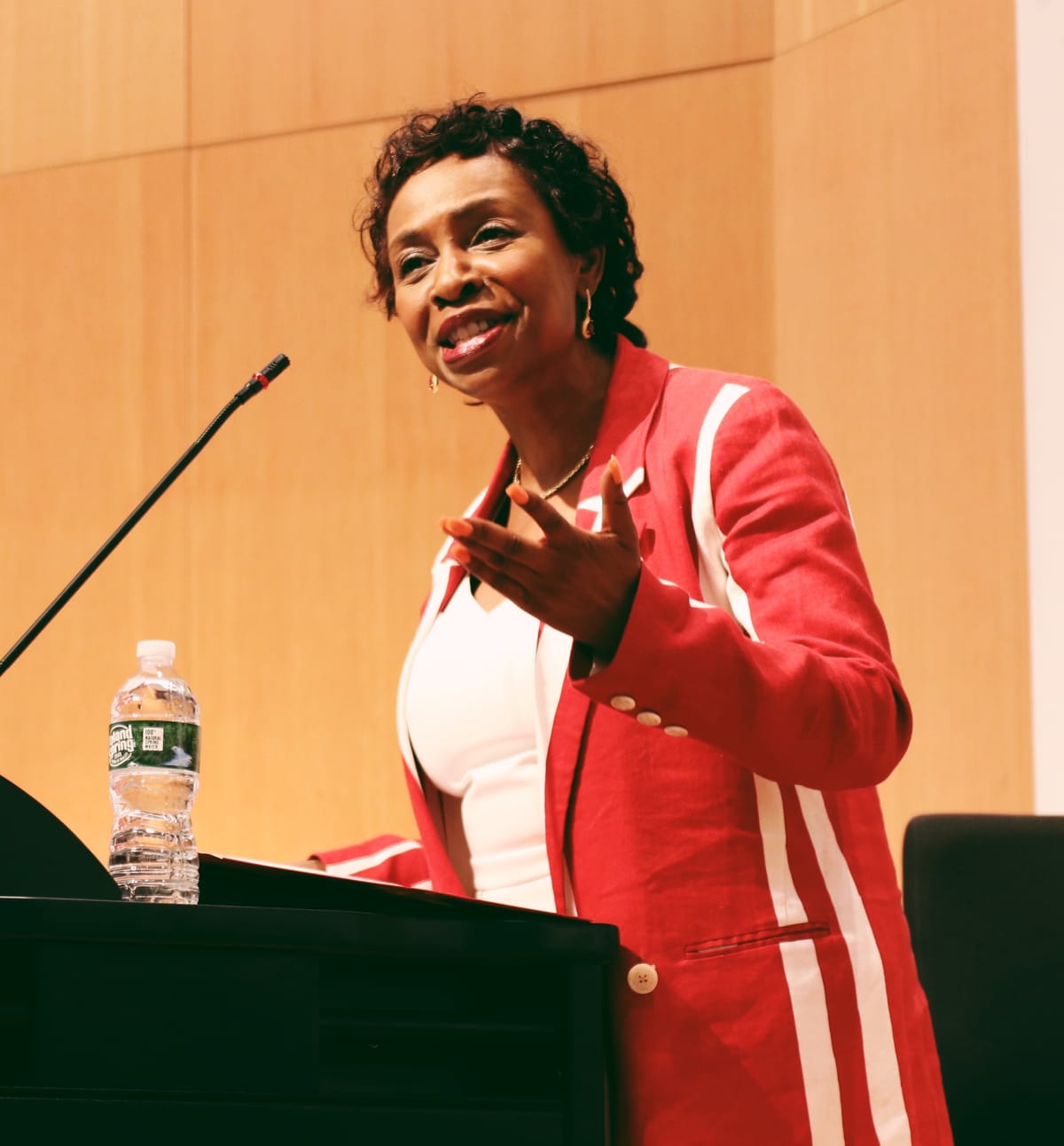One Of the Hardest To Count Districts In America is Central Brooklyn. Here’s Why Census 2020 Matters.


CROWN HEIGHTS / FLATBUSH – The 9th Congressional District is one of the “hard to count” districts for the census in the United States. Folks don’t return questionnaires, they say, and don’t open doors.
Local politicians – Congresswoman Yvette Clarke, State Senator Zellnor Myrie, Assemblywoman Diana Richardson as well as NYC Comptroller Scott Stringer gathered at a town hall at Brooklyn College last night to spread the word that every person should be counted regardless of their immigration status, especially at a time like this:
“As we are all aware, the Trump Administration has attacked the hard-working immigrants in our communities here in Brooklyn and across our nation,” Clarke said. “My Democratic colleagues and I in the Congress value the contributions of the immigrant community to our economy, to our community, and to our culture.”
According to the “Hard to Count” census map, Congressional District 9, “approx. 77% of the district’s current population (or 581,371 people) lives in hard-to-count neighborhoods, shaded in light orange-to-dark red on the map. (These are census tracts where almost a quarter or more households did not mail back their census questionnaires in 2010.) Without higher self-response, more households in these and other neighborhoods in District 9 are at risk of being missed in the 2020 census.”
Neighborhoods of particular concern include Crown Heights, Flatbush and East Flatbush due to their large concentrations of “persons of color, recent immigrants, young children, renters and low-income households” – all factors that mark a “hard to count” area.

Clarke urged people to realize that funding and resources are tied to the census count, speaking to the audience of a few dozen people at the town hall she was hosting.
“Things like classroom sizes, pre-school classes, access to neighborhood health care, and even, believe it or not, the length of the time it takes for our stoplights to change,” she said. “If we say that we are lesser of the population than we actually are, we suffer the consequences of that.”

NYC Comptroller Scott Stringer echoed Clarke’s sentiments. He said, “People have to understand – without the immigrants of NYC, the city’s economy would be dead. That’s right, I said it. Dead.”
Late last month, the Comptroller’s office released a report studying internet access in various neighborhoods across the city ahead of the 2020 census. The report found that Kensington and Boro Park are in the top five lacking access to the internet. This poses a problem because the census will mostly be taking place online.

“A complete and accurate count is essential for New Yorkers to receive the resources they need – for many residents, programs that are lifelines are in jeopardy. Data is power, which is why duplicitous forces are intently focused on using the count to hold back marginalized communities,” Stringer told Bklyner at the time the report came out.
Stringer’s mention of the report caused some people to mumble in agreement in the audience. “Exactly. You tell them,” someone said. The census, Stringer said, will affect the next ten years. It also affects the $6 billion in funding the City receives, which is why it’s important that everyone has access to the internet.

State Senator Zellnor Myrie, who also represents these “hard to count” communities in Brooklyn, got a lot of applause from the audience. “Just a couple of weeks ago, ICE was right at our doorsteps trying to kick people out of this country,” Myrie said. “And the reason they were unsuccessful was because … folks from the community that let them know what their rights are.”
“It is critically important that not only we are aware of the importance of the census, but that we are aware of what our immigrant rights are.”

Assemblywoman Diana Richardson urged neighbors to share everything they learned at the town hall with others.
“What I notice a lot about our communities is that people are suffering in silence until the eleventh hour when there’s really a crisis,” she said. “There is so much help out that is out there to assist people… We will do everything we can to protect you.”
After elected officials spoke, a panel of experts made a few remarks on the 2020 census and immigration and fliers were handed out with census information.
“Together we not only can stop Trump, but we can also show the world that we can build a city with our immigrants and with an extra $6 billion [in federal funding] for our city,” Stringer said. “We can have our cake and eat it, too.”




